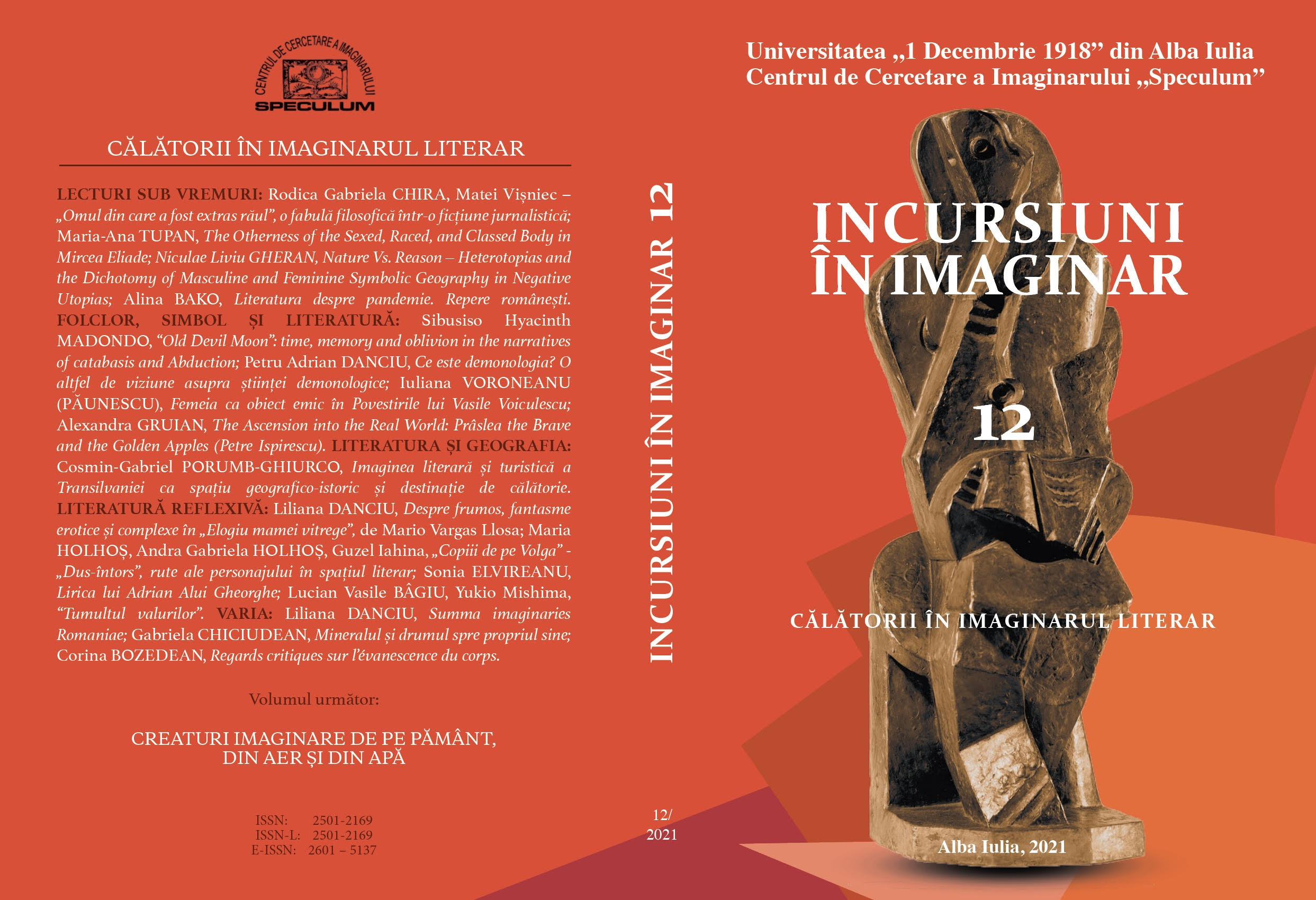The Otherness of the Sexed, Raced, and Classed Body in Mircea Eliade
The Otherness of the Sexed, Raced, and Classed Body in Mircea Eliade
Author(s): Maria-Ana TupanSubject(s): Language and Literature Studies, Studies of Literature, Romanian Literature, Philology
Published by: Editura Aeternitas
Keywords: Mircea Eliade; modernist fantasy; identity studies; poetics of otherness; critique of representation;
Summary/Abstract: For a long time modernists were blamed for their aloofness from the world of common people and from lived history, willingly shutting themselves up in ‘Axel’s Castle’ - the title of Edmund Wilson’s negative assessment of high modernism at the end of the decade which had seen its bloom (1931). Recent revaluations, however, such as Christopher Butler’s ‘Early Modernism’, 1994, have focused on an underlying ideological agenda which shows modernist artists’ involvement in current issues, such as Empire politics, gender conflicts, race prejudices, apprehensions about revolutionary threats to the existing class hierarchy and property ownership or the consequences of the Great War. A re-reading of Mircea Eliade’s works has reclassified his work as that of a cultural anthropologist rather than a dogmatic historian of religion. Even his inroads into the fantastic are accompanied by echoes of the tensions working up people in an age of tremendous changes in politics and social relationships. Our paper is probing into the ideological unconscious of three of his fanatasy writings: ‘Miss Christina’ and the classed body, ‘At the Gypsies’ raced bodies, and Les trois graces, or the woman body cast in flesh and in word. The encounter of characters belonging to different categories of social class and status plunges into trauma and spectrality. The gypsy skin carries signs of witchcraft, irrationality, libidinal energy, and the intersection with civilization causes exit from history. The eternal femininity is associated with sin, seduction, doom, and a male’s need of escape from its calling is the otherness of signs, of meaning and semiotic ubiquitousness, which ranks the same and follows the same logic as the Biblical trinity.
Journal: Incursiuni în imaginar
- Issue Year: 1/2021
- Issue No: 12
- Page Range: 33-45
- Page Count: 13
- Language: English

